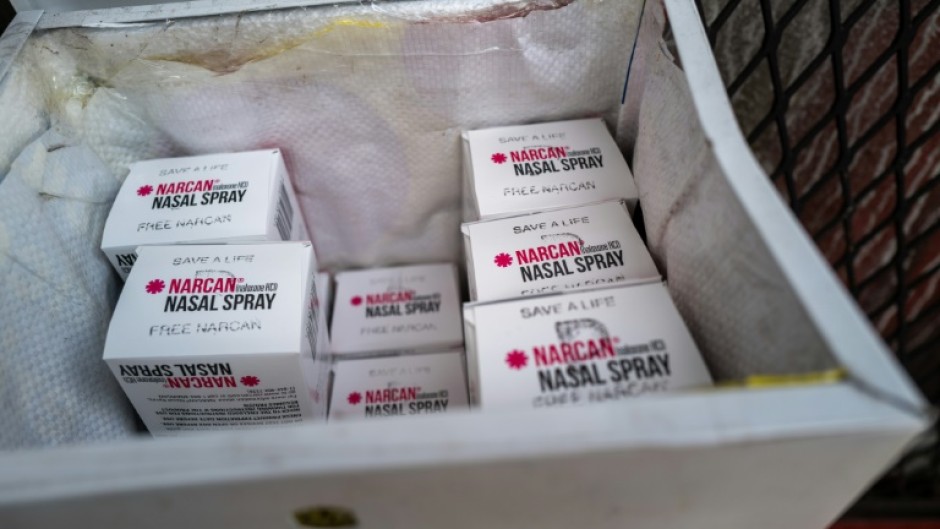Drug overdose deaths in the United States declined last year for the first time since 2018, provisional data released Wednesday showed, suggesting tentative progress in combating the opioid epidemic even as experts cautioned against premature celebration.
There were an estimated 107,543 such deaths in the country in 2023, down three percent compared to the year before -- with the decline driven by a drop in fatalities associated with the synthetic opioid fentanyl, according to the Centers for Disease Control and Prevention (CDC).
"Today's data showing a decrease in drug overdoses over the 12-month period through December 2023 is heartening news for our nation and demonstrates we are making progress to prevent deaths from drug overdoses," said the CDC's chief medical officer Deb Houry.
But, she acknowledged, "this does not mean we have accomplished our mission," and much work remains to bring down the "staggering" annual death toll that remains well above 100,000.
- Opioid crisis -
America's opioid crisis has its roots in the 1990s with the aggressive marketing and over-prescription of opioid painkillers like OxyContin.
The current, decade-long surge in overdose deaths is largely driven by illicitly manufactured fentanyl -- primarily produced in China and smuggled into the United States through Mexico -- often mixed with stimulants including methamphetamine and cocaine.
More than a million American lives have been lost to drug overdoses over the past two decades.
This rate of mortality is far above peer countries, with only Scotland coming close. Factors including policies that emphasize criminalization and incarceration above drug treatment and harm-reduction are likely contributing, according to an analysis by nonprofit The Commonwealth Fund.
Joseph Friedman, a researcher at the University of California, Los Angeles, told AFP it was important to be cautious about over interpreting provisional figures, which could be revised in the final analysis.
"However, big picture, what is clear is that the death rate is currently leveling out compared to prior increases," he said.
"Many factors are likely playing a role here, including scaling up addiction treatment, making naloxone more available, as well as the spread of fentanyl virtually exhausting new places to take hold," Friedman added.
- Naloxone surge -
President Joe Biden's government has made expanding access to the opioid overdose reversal medicine naloxone a centerpiece of its policy to combat overdose deaths, making it available in schools, workplaces, airports and more.
Sold under the brand name Narcan and administered as a nasal spray, it is also available for over-the-counter purchase at pharmacies nationwide.
Friedman said it was important to note that part of the reason fentanyl deaths may be leveling out was simply because the drug had reached a saturation point in several states, even as it found new markets along the West Coast.
"Although the apparent leveling off from past increases in deaths is encouraging, there are no signs that the fundamental structural drivers of this crisis have changed considerably," he said.
And while deaths among white Americans have declined, they continue to rise among Black and Native Americans, highlighting the need to reduce barriers to services, and stabilize people exposed to fentanyl on safer opioids, he said.
By Lucie Aubourg And Issam Ahmed

